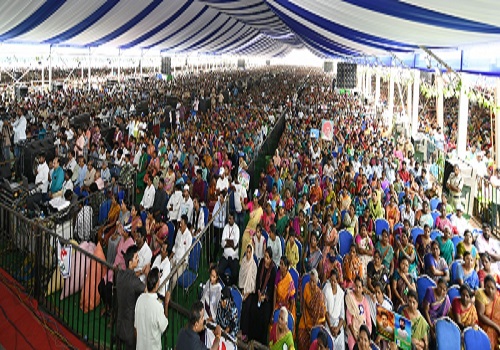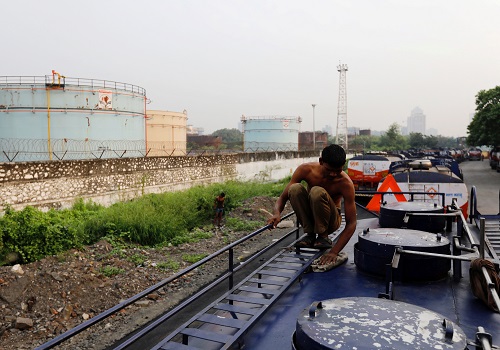Andhra Chief Minister launches distribution of house sites among poor in Amaravati

Follow us Now on Telegram ! Get daily 10 - 12 important updates on Business, Finance and Investment. Join our Telegram Channel
Ignoring the objections of Amaravati farmers and the opposition parties, Andhra Pradesh Chief Minister Y. S. Jagan Mohan Reddy on Friday formally launched distribution of house site pattas to 50,793 poor women beneficiaries in an area which was previously earmarked for development of state capital here.
He launched the programme in an area called R-5 zone spread over Guntur and NTR districts.
Chief Minister Reddy also formally launched the programme of handing over to the beneficiaries 5024 TIDCO houses constructed at a cost of Rs 443.71 crore in the Capital Region Development Authority (CRDA) region.
Addressing a huge public meeting of beneficiaries before distributing the house site pattas, the Chief Minister said construction of houses in all 25 layouts will begin on July 8 coinciding with the birth anniversary of his father and former Chief Minister Dr Y.S. Rajasekhara Reddy. In the next one week, geo-tagging of all beneficiaries would be completed, he said.
He said the government will spend Rs 2000 crore for the construction of houses and providing infrastructure in 25 layouts benefiting 23,762 poor women who got house site pattas in 11 layouts in Guntur district and 27,031 women who received the pattas in 14 layouts in NTR district.
The ruling YSR Congress Party (YSRCP) said that it was a special day in the history of the country as the TDP-backed farmers fought in vain to stop the distribution of house sites by creating legal hurdles and approaching even the Supreme Court saying demography of the CRDA would be disturbed.
"These are not just house site pattas, they are social justice instruments too," Jagan Mohan Redy said and described the event as historical and unprecedented.
Explaining about the three options under which the houses would be constructed, he said under the first option, the government would transfer Rs 1,80,000 directly into the bank accounts of beneficiaries who want to construct the dwelling units on their own. Under the second option, the government would transfer the labour expenses directly into the bank accounts of beneficiaries after supplying cement, steel and door frames and under the third option, the government will fully take upon the responsibility of construction.
In all options, sand would be provided free to the beneficiaries while quality steel, cement and door frames would be supplied at subsidised rates as per the policy adopted in all Jagananna colonies across the state, he clarified.
Government would also arrange bank loans up to Rs 35,000 each for all beneficiaries at 25 paise interest for expediting the construction, he said, adding that the beneficiaries are free to choose the option.
On May 17, a Supreme Court bench hearing a batch of Special Leave Petitions (SLPs) filed by the farmers and landowners in Amaravati declined to grant a stay on an earlier order by the Andhra Pradesh High Court, which permitted the state government to allocate housing sites to the economically weaker sections in the R5 Affordable/EWS Housing Zone. However, the apex court also ruled that the rights of beneficiaries of house sites will be subject to the Andhra Pradesh High Court's final judgment.
In March this year, the state government declared a new zone R-5-in Amravati to provide houses to the poor people over 900 acres of land.
It is part of the land that was previously earmarked for industries, businesses and other commercial purposes in the master plan for the Amaravati capital area.
The move angered Amaravati farmers' Joint Action Committee (JAC) which is already protesting the decision of the state government to develop three state capitals.
The farmers challenged it in the High Court on the ground that this will change the status of the capital region and affect their interests.
The High Court on May 5 refused to pass interim orders on a petition filed by farmers of Amaravati.
The farmers alleged that the allotment house sites in violation of the master plan. They argued that locals should be allotted the sites after development of the region.
The government defended its action. It argued that farmers can demand lands assured to them by the government but it has the right to allot land to anybody. The court was told that the government has taken a decision to allot land to the poor.
It was in October last year that the government had amended the Amaravati master plan in order to provide houses to poor people over 900 acres of land spread across in four villages.












 320-x-100_uti_gold.jpg" alt="Advertisement">
320-x-100_uti_gold.jpg" alt="Advertisement">












